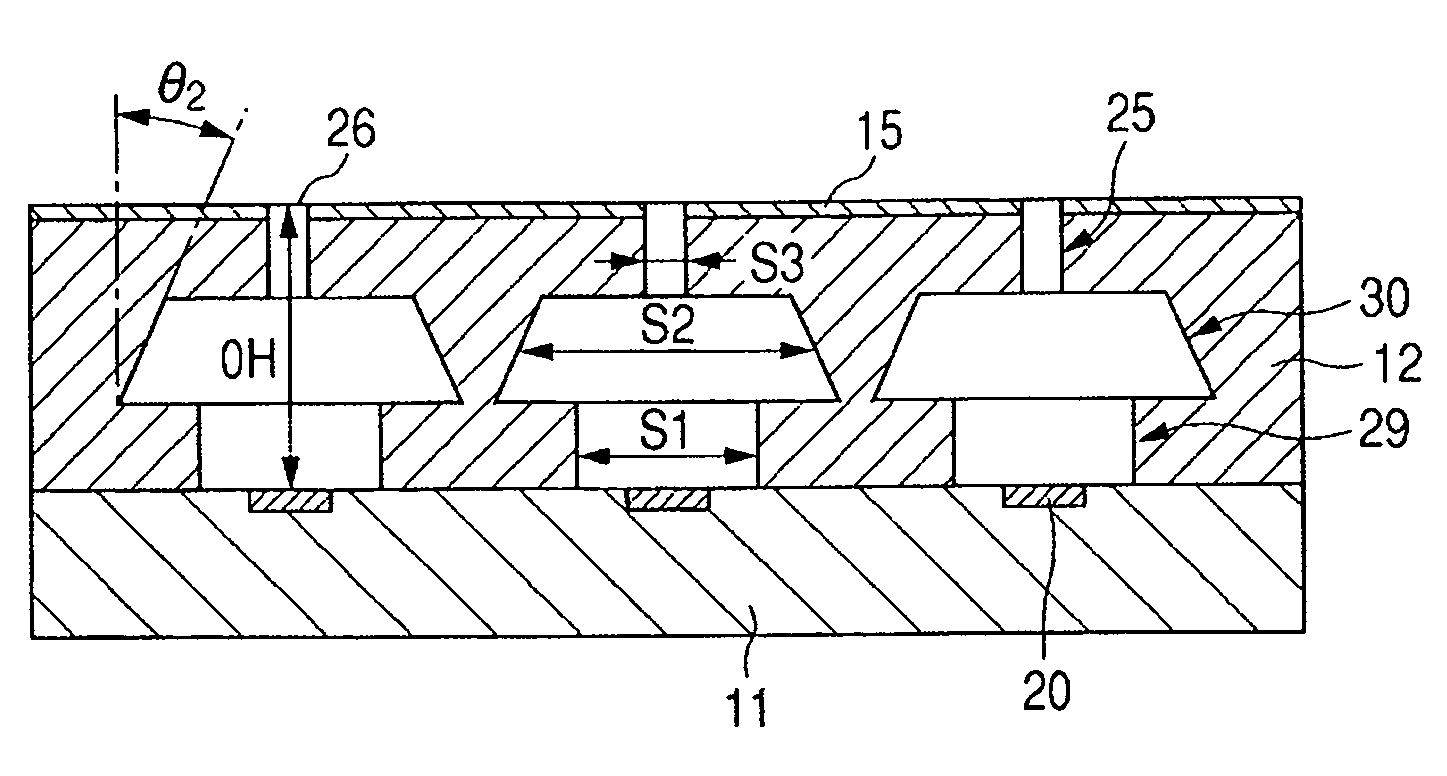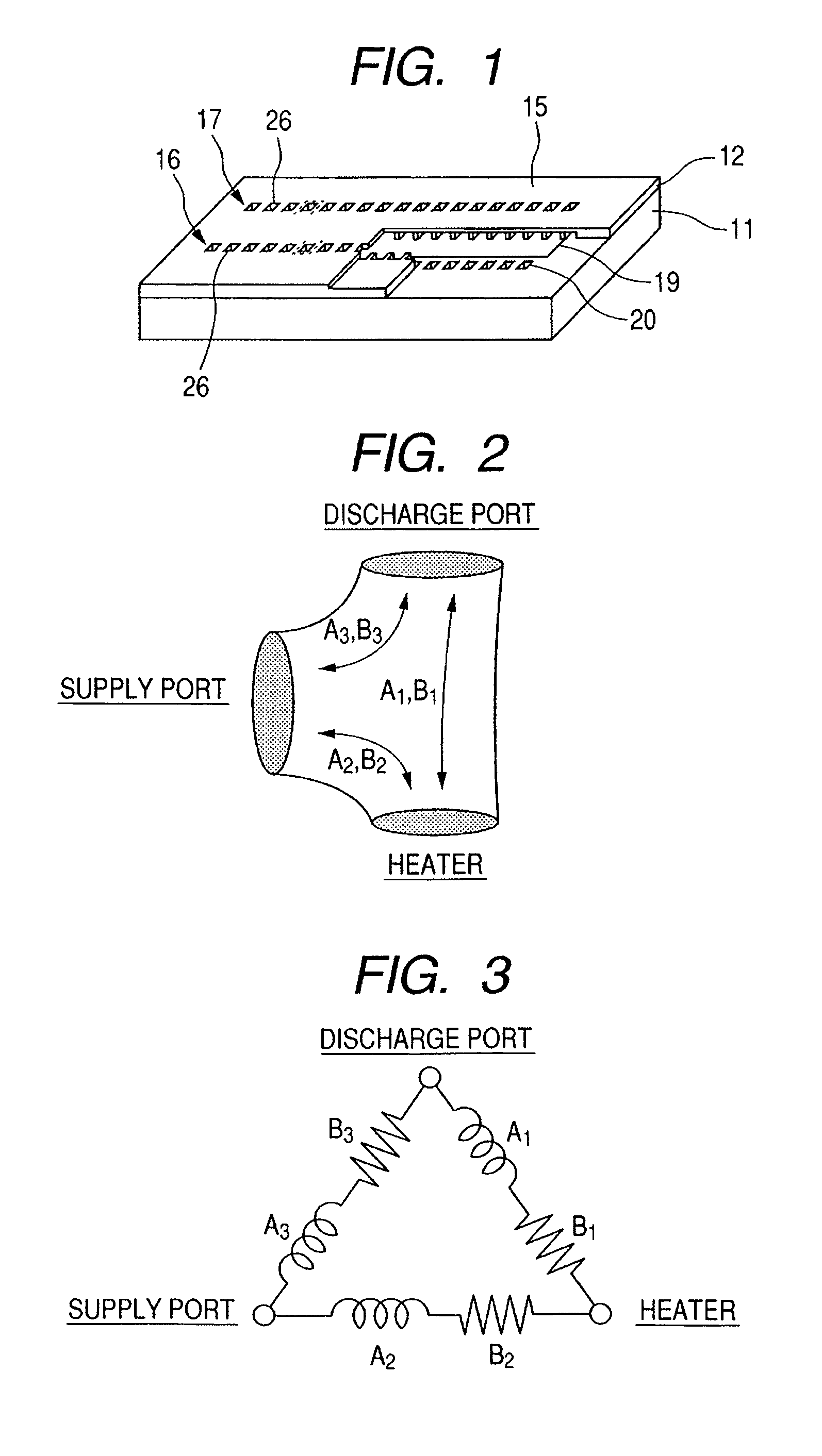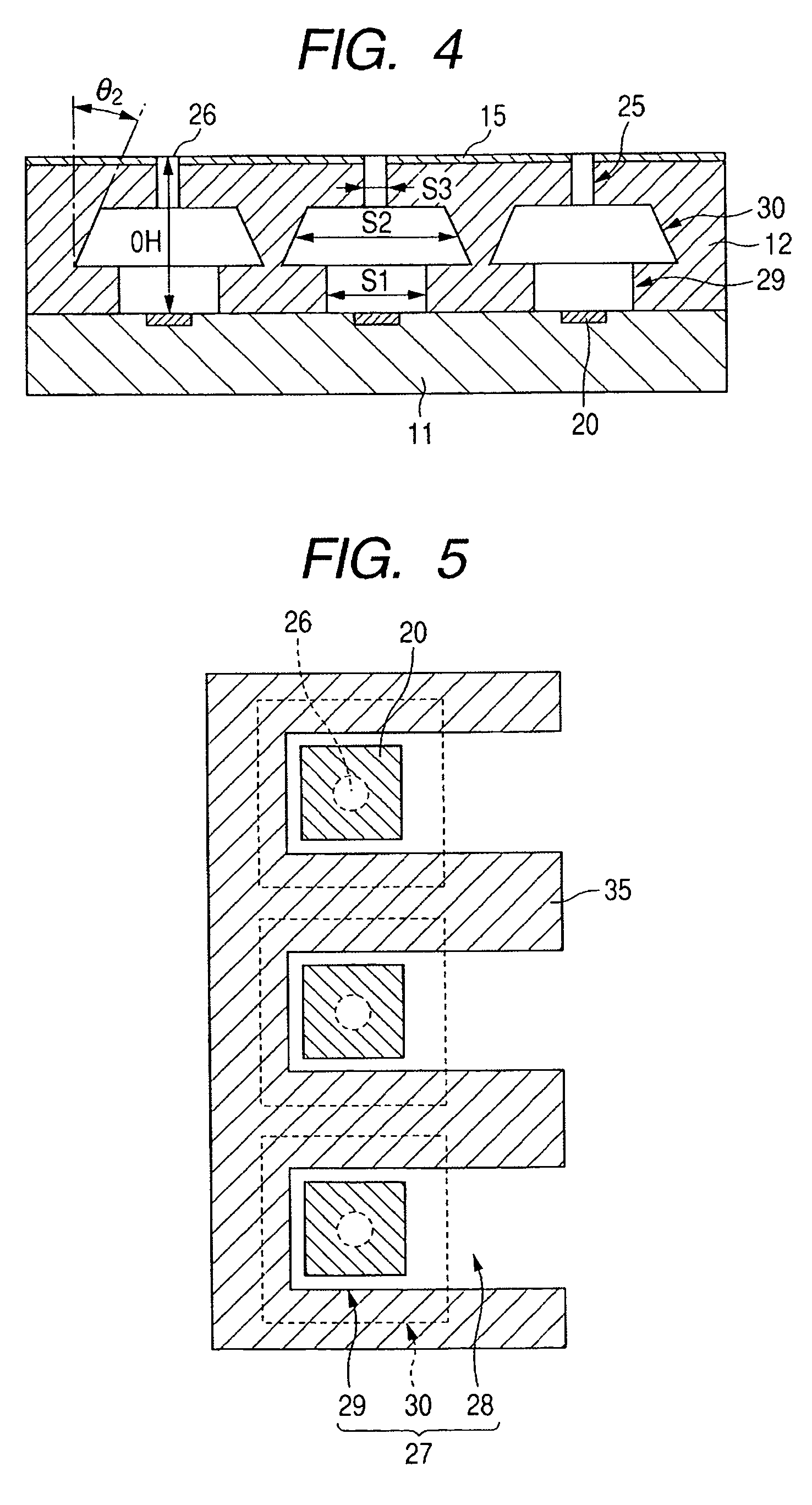Liquid discharge head and method of manufacturing the same
a liquid discharge head and liquid discharge technology, applied in printing and other directions, can solve the problems of pressure loss, discharge speed of ink droplets decreases with a decrease of the pressure of the bubbles, and decreases in the amount of ink droplets, so as to enhance the stability of the discharge operation, enhance the degree of freedom of a component or viscosity, and enhance the effect of liquid discharge characteristics
- Summary
- Abstract
- Description
- Claims
- Application Information
AI Technical Summary
Benefits of technology
Problems solved by technology
Method used
Image
Examples
example 1
[0089]The above-described liquid discharge head has a structure in which the bubbles generated by heating the heaters 20 communicate with the outside air through the discharge ports 26 as representatively shown in FIGS. 4, 5, and 11F. Therefore, the volumes of the ink droplets discharged from the discharge ports 26 largely depend on a total volume of the ink with which the first bubbling chamber 29, the second bubbling chamber 30, and the discharge port portion 25 are filled. In other words, the volumes of the discharged ink droplets are substantially determined by a structure of a nozzle 27 portion of the liquid discharge head.
[0090]Therefore, according to the liquid discharge head of the present example, an image having a high quality level can be recorded without any ink unevenness. It is to be noted that in the liquid discharge head of Example 1, the shortest distance OH between the main surface of the heater 20 and the discharge port 26 is set to 30 μm or less in order to vent ...
example 2
[0091]In a liquid discharge head of the present example, as shown in a structure of FIG. 12, a length of each discharge port portion 25 parallel to a thickness direction of the orifice substrate 12 is large as compared with the liquid discharge head of Example 1. That is, the shortest distance OH between the main surface of the heater 20 and the discharge port 26 is lengthened. In the present example, the shortest distance OH is set to about 30 μm to 75 μm. Accordingly, as to the volume of each discharge port portion 25, a structure is formed in which the average sectional area S1 of the first bubbling chamber 29, the average sectional area S2 of the second bubbling chamber 30, and the average sectional area S3 of the discharge port portion 25 satisfies a relation of S2>S1>S3 in the same manner as in Example 1.
[0092]In a case where the discharge port portion 25 is formed into an elongated cylindrical shape, the ink is usually easily secured by evaporation. However, according to the ...
example 3
[0093]In the liquid discharge head of the present example, as shown in representative structures of FIGS. 13 and 14, a part 35a of the nozzle wall 35 is protruded and isolated between the supply path 28 and the first bubbling chamber 29. Moreover, the discharge port portion 25 and the first bubbling chamber 29 are filled with the ink supplied from the supply port 19 through the second bubbling chamber 30. Therefore, according to this liquid discharge head, a refill time after the bubbling is shortened as compared with that of the conventional liquid discharge head, and higher-speed recording is possible.
PUM
 Login to View More
Login to View More Abstract
Description
Claims
Application Information
 Login to View More
Login to View More - R&D
- Intellectual Property
- Life Sciences
- Materials
- Tech Scout
- Unparalleled Data Quality
- Higher Quality Content
- 60% Fewer Hallucinations
Browse by: Latest US Patents, China's latest patents, Technical Efficacy Thesaurus, Application Domain, Technology Topic, Popular Technical Reports.
© 2025 PatSnap. All rights reserved.Legal|Privacy policy|Modern Slavery Act Transparency Statement|Sitemap|About US| Contact US: help@patsnap.com



